
soupçon/ˈsuːpsɒn,ˈsuːpsɒ̃/ noun
1. a very small quantity of something; a slight trace, as of a particular taste or flavorSunday Soupçons is where I scribble mini-reviews for books I don’t have the brainspace/eloquence/smarts to write about in depth – or if I just don’t have anything interesting to say beyond I LIKED IT AND YOU SHOULD READ IT TOO!
Two books that I simply cannot do justice to, but I figured even lame mini-reviews are better than NONE. They’re both instant Crescent Classics; they both belong on Best of the Decade lists. Just. WOW.
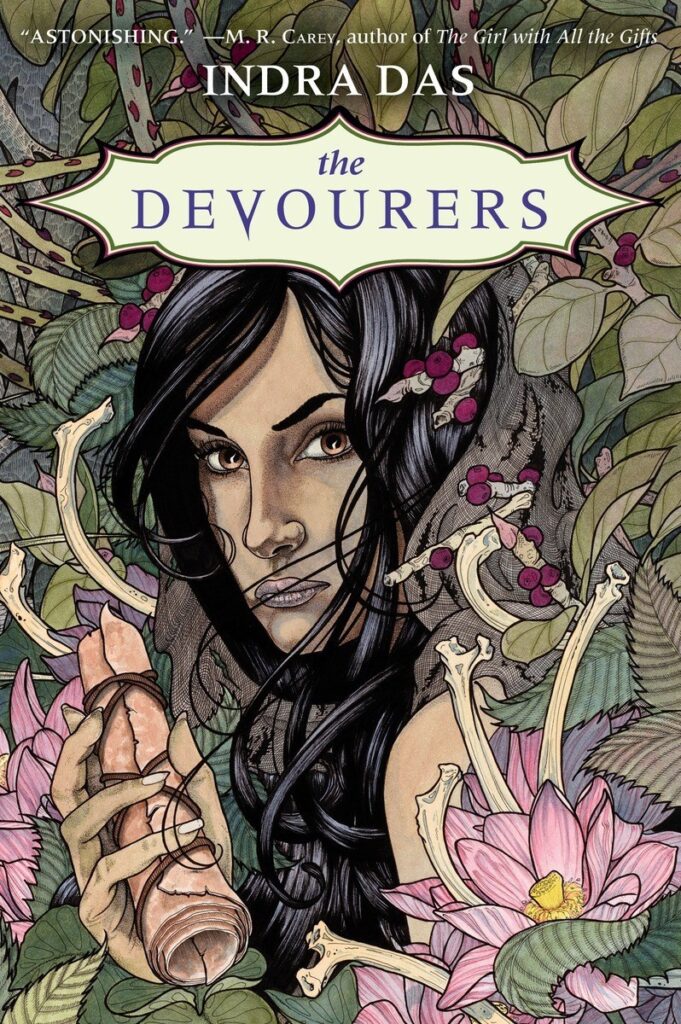
Genres: Adult, Fantasy, Contemporary or Urban Fantasy, Historical Fantasy, Horror, Queer Protagonists
Representation: Desi MC, queer + nonbinary Desi MC, major nonbinary character, M/NB (or NB/NB?)
PoV: First-person, past-tense; multiple PoVs
ISBN: 1101967528
Goodreads

For readers of Neil Gaiman, Margaret Atwood, China Miéville, and David Mitchell comes a striking debut novel by a storyteller of keen insight and captivating imagination.
LAMBDA LITERARY AWARD WINNER • NAMED ONE OF THE BEST BOOKS OF THE YEAR BY THE WASHINGTON POST
On a cool evening in Kolkata, India, beneath a full moon, as the whirling rhythms of traveling musicians fill the night, college professor Alok encounters a mysterious stranger with a bizarre confession and an extraordinary story. Tantalized by the man’s unfinished tale, Alok will do anything to hear its completion. So Alok agrees, at the stranger’s behest, to transcribe a collection of battered notebooks, weathered parchments, and once-living skins.
From these documents spills the chronicle of a race of people at once more than human yet kin to beasts, ruled by instincts and desires blood-deep and ages-old. The tale features a rough wanderer in seventeenth-century Mughal India who finds himself irrevocably drawn to a defiant woman—and destined to be torn asunder by two clashing worlds. With every passing chapter of beauty and brutality, Alok’s interest in the stranger grows and evolves into something darker and more urgent.
Shifting dreamlike between present and past with intoxicating language, visceral action, compelling characters, and stark emotion, The Devourers offers a reading experience quite unlike any other novel.
Praise for The Devourers
“A chilling, gorgeous saga that spans several centuries and many lands . . . The all-too-human characters—including the nonhuman ones—and the dreamlike, recursive plot serve to entrance the reader. . . . There’s no escaping The Devourers . Readers will savor every bite.” —N. K. Jemisin, The New York Times Book Review
“ The Devourers is beautiful. It is brutal. It is violent and vicious. . . . [It] also showcases Das’s incredible prowess with language and rhythm, and his ability to weave folklore and ancient legend with modern day loneliness.” — Tordotcom
“A wholly original, primal tale of love, violence, and transformation.” —Pierce Brown, #1 New York Times bestselling author of The Red Rising Trilogy
“Astonishing . . . a narrative that takes possession of you and pulls you along in its wake.” —M. R. Carey, author of The Girl with All the Gifts
You know how, very occasionally, a book comes along that leaves you shaken after you’ve read it? Raw and vulnerable and knocked askew, your heart in your throat, your soul trembling, able to see a colour you couldn’t see before?
The Devourers is one of those books.
In a lot of ways, it’s a book I shouldn’t like, and I did actually DNF it three or four times over the years. Don’t ask me what made me pick it up again recently, because I have no clue; I’m just extraordinarily glad that I did. Because despite the gore, and the ick, and the crudeness (there is a great deal of piss and shit and spit) – despite the central plot revolving around a rape – despite the technically-not-cannibalism – despite the frank brutality and grittiness – despite all of that, The Devourers is stunning. I feel slightly ridiculous saying so, but reading it was all but a religious experience – something spiritual was definitely happening inside me, reading this.
I have no idea how to explain. I don’t know how to put it into words. It…is a hopepunk manifesto, actually? It’s the opposite of grimdark? It’s a rejection of cynicism and nihilism, even though it looks, at first, like anything but? It’s a ripping apart of toxic masculinity, and Nice Guy-ness, and misogyny – it’s so incredibly queer, in terms of sexuality and gender (good luck labelling literally any of the cast) – it’s boundary-breaking, Fantasy and Historical Fantasy and Horror all at once, but also something else, something beyond any of those, elevated above all of those. It’s a story-within-a-story (who doesn’t love those?) – actually it’s several stories-within-a-story, complete with at least one unreliable narrator. The prose is beautiful enough to make you weep, it’s so gorgeous it hurts. The worldbuilding is so thrillingly unique, these shapeshifters are fucking terrifying but I loved reading about them, they’re so strange and unhuman and they’re physically nonbinary in their not-human shapes! They mesh with (or inspire) different myths around the world! It’s so COOL! It’s like nothing else I have ever read, ever! The Dragoneers of Bowbazar (Das’ other published book, a novella) did not prepare me!!!
It’s so extremely dark, there are many scenes of the shapeshifters eating humans and since the shapeshifters spend most of their time looking human, that reads as functional cannibalism (even if it technically isn’t, because the shapeshifters aren’t human). There is rape, though thankfully it isn’t graphic, with the intent to impregnate, which I feel is an extra layer of awful on top of the rape itself. There is mass murder. There are several major characters who work very hard to convince you that humanity is fundamentally evil and nothing matters. For the love of fuck, look up the trigger warnings before you pick this one up, because there are so many.
But none of it’s gratuitous, all of it matters, Das is using the ugliness – not even using it for contrast, but using it for and as itself, creating something exquisite out of it. The ugliness, the awfulness, has a point, in a way I’ve rarely seen attempted and even less rarely seen done successfully. I don’t know how to articulate what Das accomplishes with it… I don’t know. But it’s – awe-inspiring. Spectacular. World-changing, for me, really, because it’s rewired my brain, I didn’t know you could do this, I didn’t know you could – take the ugliness and awfulness, and – THIS – with them.
ARGH. I literally can’t. Just – AHHH.
The Devourers is a soul-searing masterpiece. If you can read it, you must read it. It is that simple.
And if you do, maybe you’ll be smarter than me and manage to articulate what I can’t. If so, please come back and tell me. I would so love to know the words for this kind of magic.

Genres: Fantasy, Contemporary or Urban Fantasy, YA
Representation: Black MC, sapphic Asian-American bestie, major bisexual character, nonbinary secondary character, MLM tertiary characters, tertiary F/F
PoV: First-person, present-tense
ISBN: B084GB4YZQ
Goodreads

After her mother dies in an accident, sixteen-year-old Bree Matthews wants nothing to do with her family memories or childhood home. A residential program for bright high schoolers at UNC–Chapel Hill seems like the perfect escape—until Bree witnesses a magical attack her very first night on campus.
A flying demon feeding on human energies.
A secret society of so called “Legendborn” students that hunt the creatures down.
And a mysterious teenage mage who calls himself a “Merlin” and who attempts—and fails—to wipe Bree’s memory of everything she saw.
The mage’s failure unlocks Bree’s own unique magic and a buried memory with a hidden connection: the night her mother died, another Merlin was at the hospital. Now that Bree knows there’s more to her mother’s death than what’s on the police report, she’ll do whatever it takes to find out the truth, even if that means infiltrating the Legendborn as one of their initiates.
She recruits Nick, a self-exiled Legendborn with his own grudge against the group, and their reluctant partnership pulls them deeper into the society’s secrets—and closer to each other. But when the Legendborn reveal themselves as the descendants of King Arthur’s knights and explain that a magical war is coming, Bree has to decide how far she’ll go for the truth and whether she should use her magic to take the society down—or join the fight.
If you’re even vaguely adjacent to the YA SFF space, you’ve probably heard people raving about Deonn’s Legendborn series.
I am here to tell you that the hype? Honestly, undersells it.
Legendborn, book one, is freaking phenomenal. This is clever, incisive fantasy where the characters act like real people (real teens, even!) and nothing is ever handwaved, or justified Because Plot. It manages to be incredibly realistic even while giving us Arthurian magic, and I could not get enough of the way Deonn interrogates common fantasy tropes and tableaus, how she centers the experiences and cultures of people of colour while ticking every box Urban Fantasy fans are looking for.
Bree is a fantastic main character, brave and smart, angry and grieving, refusing to be cowed or broken. Even when she made choices I wouldn’t have, she always made sense; her actions always fit her character, are always the culmination of her thoughts and experiences. (That feels like it should be a given, but YA is especially bad at featuring leads who behave in ways that don’t feel natural to them Because Plot.) And I really loved that Bree – and every other PoC in the book – was allowed to be complicated; she gets scared and frustrated and breaks down sometimes, she doesn’t always know what to do, but she also gets to be soft and joyful. She has to struggle against so much racism (and I appreciated that even her allies fucked up sometimes, even when it made me wince) but she also gets to love who she is, to learn about and be proud of her heritage. She’s allowed to be beautiful, which, let’s be real, Black girls often aren’t.
Alas, I never found the racism unbelievable – it always felt painfully realistic – but I didn’t think Legendborn was preachy or something either. It’s more like…this is just what it’s like to be Black in a society run by white people, especially in the South of the US. Pretending otherwise would be lying. But this is far from racism misery-porn, and I don’t think it distracts from the story. I think it’s a vital, integral part of the story: Deonn pretty clearly set out to write a book where race, and the history of Black people in particular, was not swept under the rug. And it works: it’s a big part of what makes Legendborn so powerful, and so refreshing.
The magic itself, the worldbuilding, is as simple as you’d expect in YA (though I do think it’s an especially elegant simplicity, and I am still delighted that Deonn had worldbuilding that explained why teens and young people are so much at the forefront of the war against demons – so many stories never have an explanation for that!) The…honestly it feels less like an examination and more like an acknowledgement…of race and racism is what elevates it. If you’d dropped this magic system in an all-white cast, it would be entirely forgettable, generic Urban Fantasy. Bree, and everything that comes with her, is what makes Legendborn fucking legendary.
I’m not doing this book justice at all, but all I can say is: if you ever enjoy YA Fantasy, then this is mandatory reading. I can’t BELIEVE it took me so long to get to it! I had the sequels waiting on my ereader before I’d even finished Legendborn, that’s how much I was loving it – and the ending was so much more spectacular then I’d ever imagined, making me SO GLAD I could immediately dive into the next one!
Read it. READ IT. I promise you won’t regret it!

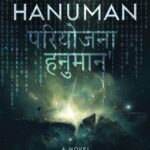
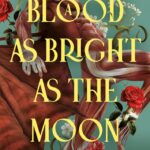
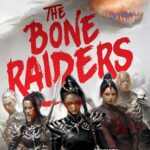

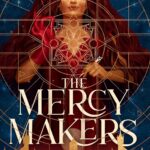
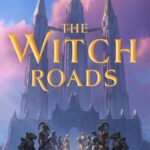
Leave a Reply